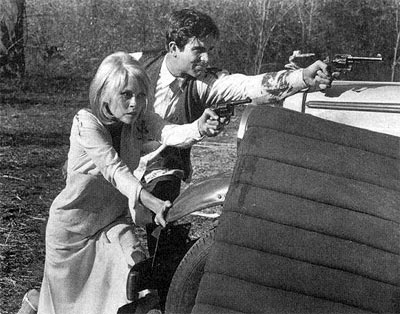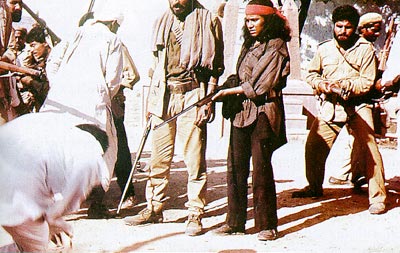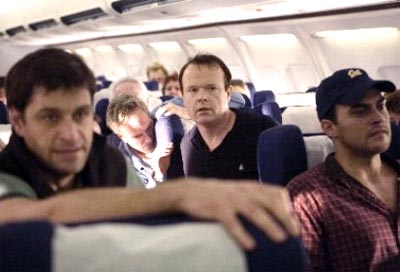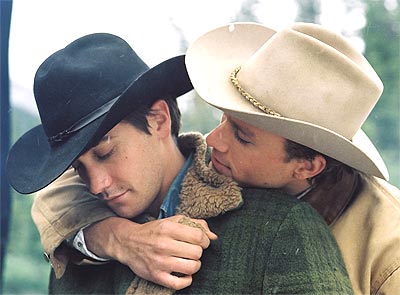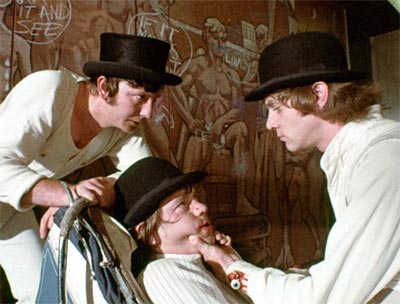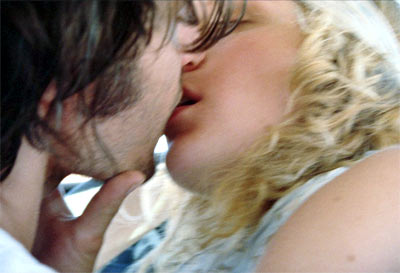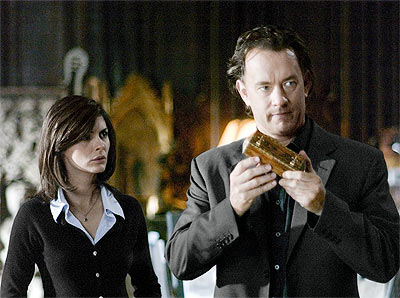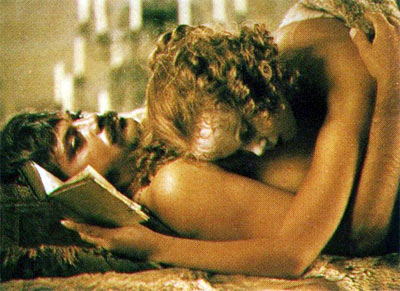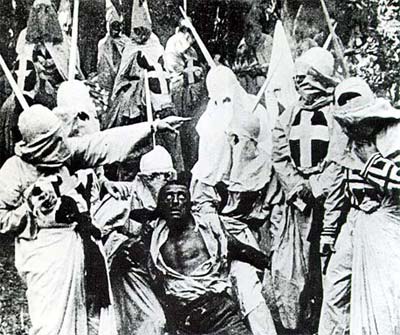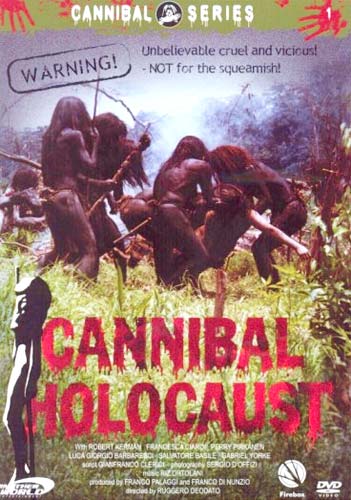 | « Back to article | Print this article |
The Most Controversial Movies Ever
What, you think making a song out of the National Anthem is controversial?
Clearly gimmick-loving master director Ram Gopal Verma isn't pushing the envelope as much as he can -- and thank heavens for that.
Controversies in cinema have been long and haunting, and in a week when headlines are dominated by Angels & Demons protests and that aforementioned clumsily written Rann song, here's a look at the most traumatically controversial movies of all time:
10. Bonnie and Clyde
Arthur Penn's classic film about a pair of fugitives operating during the Great Depression is a landmark film, one that ushered in New Hollywood and broke many a taboo, but when the film released in 1967 it created an enormous furore.
There was much yelling, especially about the film's violent, slow-motion climax, where Faye Dunaway and Warren Beatty are shot down in a rainstorm of bullets. Screen gunslinger James Garner himself called it 'amoral,' while critics of the time chastised the over-use of violence.
9. Bandit Queen
Shekhar Kapoor's powerful biopic on the life and times of Phoolan Devi was in trouble right from the start. The film was based on the diaries Phoolan dictated in prison, told in snatches over her 11-year-imprisonment.
But the historical inaccuracy tag was the least of Kapur's woes, as Devi herself started decrying the film -- not least because of the graphic depictions of the dacoit being raped and sexually undermined.
Indian censors banned it at first, and Phoolan herself sued, but the film goes down in history as a truly compelling human document.
8. United 93
Paul Greengrass' darkly compelling film about the only hijacked 9/11 flight to not make it to its target might have bucketfuls of good reviews, but when the film came out in 2006, it traumatised theatrical audiences who felt it was far too early to see a recreation, especially one that realistic.
The trailer caused particular consternation, and led to mass outbursts among theatre audiences, most noticably in New York. There are reports that a Manhattan theatre pulled the trailer because audiences were shocked and upset by them, and complained. The film's Internet forum too was shut down, reportedly due to flaming.
7. Brokeback Mountain
Ang Lee's fantastic film about two cowboys in love was a motion picture milestone, one which tenderly addressed homosexuality as just another love story, and told it excellently.
The first mainstream gay romance to be heavily promoted by the media, Brokeback came from an A-list director and received major Oscar buzz and was the clear frontrunner in winning the Best Picture prize -- one which finally, controversially went to the lesser-deserving Crash.
The conservative Catholic organisations were obviously up in arms against the film, calling it 'morally offensive' and claiming it was sexual propaganda.
Furthermore, there was negative buzz on the Internet from gay rights activists who protested that none of the film's cast and crew were actually gay.
6. A Clockwork Orange
Stanley Kubrick's 1971 classic is a fantastically trippy adaptation of Anthony Burgess' unfilmable novel about a few young droogs falling into ultraviolence, and there is no questioning the visual influence it has had on cinema itself.
Yet at the time the film released, it was rated X in the US and the UK went even further and banned it, after a spate of copycat incidents of violence and depravity broke out across the country.
Threats were made against Kubrick's family and the director withdrew the film. A Clockwork Orange wasn't officially seen in the UK for 27 years, the VHS and DVDs only releasing there in 2000 shortly after Kubrick's death.
5. The Brown Bunny
Vincent Gallo's 2004 indie was always going to be provocative considering its extreme sexual content -- but noone predicted that it would open at Cannes to boos and catcalls. Hundreds walked out at the screening, and actress Chloe Sevigny broke into tears.
Even as French critics defended the film -- famed critical magazine Les Cahiers Du Cinema called it one of the year's finest works -- the rest of the world tore it apart, with Roger Ebert calling it 'the worst film in the history of Cannes,' and embarking on a long and ugly public feud with Gallo.
4. The Da Vinci Code
Ron Howard's retelling of Dan Brown's sensationalist bestseller was always going to be trouble, and trouble it sure was as Catholic organisations around the world took offence at the film's ridiculous, utterly irrational take on Christ's bloodline.
So the Vatican called for a boycott, and protests were made by churches and Christian organisations around the world, from China to Peru to India.
However the thing that must have stuck in Howard's craw is that when the main climax of the film was shown at Cannes -- when Tom Hanks tells Audrey Tautou that she is 'without a doubt the last living descendant of Jesus Christ' -- it was met with roars of laughter.
3. The Devils
Ken Russell's 1971 film knew it was playing with fire, but jumped headlong into the flames anyway. The excessive film based loosely on Aldous Huxley's The Devils Of Loudon equated sexuality with Satanism.
Set in 1634, it tells the story of a sadistic, evil womanizing priest, who was attacked as a practitioner of witchcraft.
One of the film's most controversial -- and rarely seen -- scenes called the 'rape of Christ' was cut out before the release but audiences and Christian groups were outraged worldwide, and while it got some critical acclaim, the film was banned in Italy and Russell and his stars Oliver Reed and Vanessa Redgrave were threatened with three years of jail time if they entered the country.
2. The Birth Of A Nation
DW Griffith's 1915 film is an unquestioned American masterpiece. It is also an unquestionably racist film, shockingly so.
Denounced heavily for its horrid portrayal of black people as 'childlike, conniving and sexually animalistic', the film led to riots in major cities and bans were placed. And while the film spoke about authenticity, the major black roles were played by white actors in blackface.
To see just how hideously the film enters into stereoptypes, just note that the film is still used today as a recruitment video by the Ku Klux Klan, who received a major boost in membership following the film's release.
1. Cannibal Holocaust
Ruggero Deodato's 1980 exploitation film is the story of four documentary filmmakers who head into the Amazon rainforest and get lost among the indigenous tribes.
At the title suggests, they indulge in cannibalism and ritual rape, and six animals were killed on camera in the making of this disgusting, morbidly compelling project.
The film is repulsively realistic, and this is what caused its major woes. Master director Sergio Leone wrote to Deodato, saying, 'Dear Ruggero, what a movie! The second part is a masterpiece of cinematographic realism, but everything seems so real that I think you will get in trouble with all the world.'
And trouble it was. The film was confiscated by the courts within ten days of its release, and they believed that it was a genuine snuff film and the actors had truly been killed.
Deodato faced life in prison for murder charges and lost the original trial, but finally managed to get his actors to appear on live television to prove his innocence.
